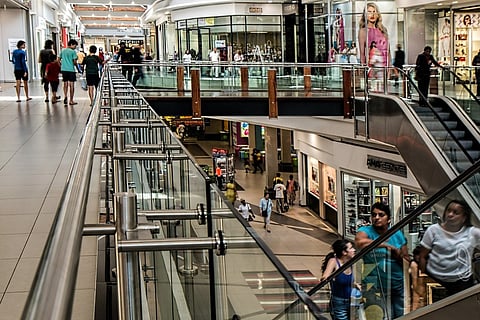

You may not be able to window shop while spending time at the mall anymore as COVID-19 is set to irrevocably change how shopping is done and the role malls will play. As retailers scramble to reinvent business models and stay relevant in the post COVID-19 era, there could emerge, many new concepts, including shopping by appointments.
This was discussed by several who were part of a webinar organised by the Retailers Association of India. The panel, comprising retailers Ajay Kapoor, President-Resident at FabIndia; Amit Kumar Sirrohi, Head – Retail Business, Raymond; Bhupesh Dinger, Director, Enrich; Sumit Dhingra, Managing Director- India, Sri Lanka and Nepal, Crocs and Sumit Ghosh, Director, Fossil India discussed what the situation looks for retailers in the next 3-6 months, and how things can be revived.
Shopping experience
In the near future, FAB India’s Ajay said that they can expect low footfalls. “Even as a retailer if we get some footfall, we will have to see and ensure how we are going to regulate traffic coming into the stores,” he said.
In addition, he added that window shopping, which is a large part of the experience of going to malls, is going to go away.
However, given the current state of affairs, the very nature of shopping will change. Amit from Raymond said that the pandemic has altered businesses and would have altered consumers’ inner motivations of purchasing things.
“This is the first time in our lives where all of us, our families, have been confined to the four walls of our houses, this changes a person, the person’s outlook towards life, we’ve reprioritized. And this is going to reflect in our shopping behaviour too,” he observed.
One big change that could potentially happen, according to Ajay Kapoor is shopping by appointment, “We have not been thinking about a shop by appointment till now, but that is probably going to be the new thing apart from getting masks and gloves and other things,” he said.
Bhupesh Dinger, Director of salon chain Enrich said that there will be pent up demand of basic grooming services, but demand for indulgences will drop. However, he said, it is important to think about things that will remain constant as well.
“From a consumer point of view the need for looking and feeling good, the need for social interaction, focus on health and wellness. From a company point of view, your reputation, the trust and processes you’ve developed, the customer base you’ve built over time, your vendor support, the great people that are in your system. These things will not change, so take these strengths and address the things that are going to change,” he said.
Malls have often been a one-stop-shop for families — with shopping, gaming arcades, theatres and food courts. However, with all of these being high touch points and being affected, the reasons to shop will change. Therefore, when the economy opens up, they expect millennials and discount seekers to be the first ones to visit stores.
In a time like this, the retailers said, they will have to focus on the safety of the customers.
Sumit Ghosh, Director, Fossil India said, “The most important thing for malls and stores to do is to create an environment of safety and win over the first few customers that come back. Then the word-of-mouth will spread. More and more shoppers will become comfortable and the business will revive.”
How businesses will change
Companies make business continuity plans taking in various scenarios, and also plan ahead. According to Sumit Dhingra, companies need to make multiple plans while planning ahead because of the variables involved.
“We don’t fully understand the properties of the virus — whether or not it will be cured, when will it be cured. On the macro economic front, we don’t know when the economy will start opening up. The third variable is how demand will bounce back,” he says.
For this, he said, companies need to have multiple plans, as well as use it as an opportunity to simplify operations.
“With these three variables, it’s not very prudent to go with one set of models. I think organisations should start modelling various scenarios. We should then start testing our cost structures, a very hard look at our cash — it's not a crisis of liquidity, but of solvency and inventory,” he said.
A key aspect of recovery, they said, is that promotions will become an integral part to bring back demand. But, end of season sales, which have become a mainstay of many brands, may shift only to liquidate inventories, and not to push for sales.